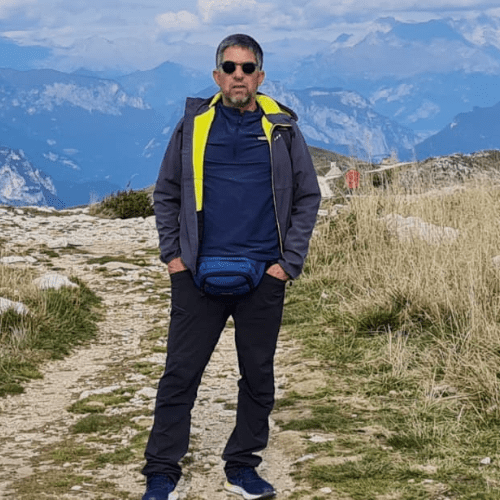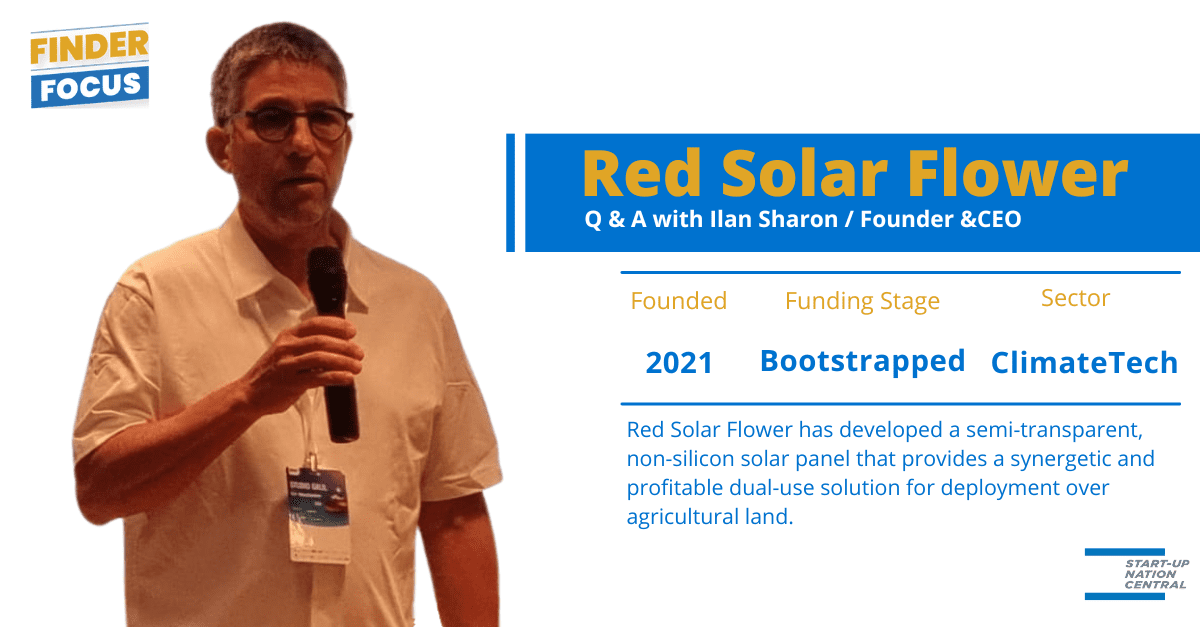
Successful companies that innovate climate change solutions can certainly be described by the adage “doing well by doing good.” Red Solar Flower clearly falls into this category, as this startup is focused on solving the dire projections of food scarcity in the face of climate change.
Leading the charge to develop groundbreaking solar panel material is Ilan Sharon. Armed with a degree from the Technion Institute of Technology in electrical engineering, as well as an MBA from Tel Aviv University, he’s devoted over 15 years of his life to solar technology innovation. As a long-time CEO across multiple high-tech companies, Ilan is now focused on the problems he doesn’t want his children and grandchildren to have to face alone.
Recently, Start-Up Nation Central sat down with Ilan for an interview about Red Solar Flower and its incredible mission.
Start-Up Nation Central: Can you tell us about the challenge your solution helps overcome?
Ilan Sharon: Our company exists to solve the issue that emerges when creating a solar panel field over an agricultural area, and how that field will obstruct the absorption of sunlight – by the crops underneath said panels. Plants and solar panels compete for the same resource: sunlight. The problem is that current solutions are either inefficient or too costly.
That’s why we created a solution by developing a material that can split the light frequencies that hit the panels into a usable resource to create clean energy, as well as allowing the right wavelengths to be delivered to the crops underneath. Now wavelengths are able to go through the solar panel and get to the plant, without having to move the panel.
This increases the crop’s yield, while also allowing the solar panel to do its job. We can cover up to 100% of the agricultural area without harming the plant’s well-being, thus producing much more power than ever previously possible in these areas. In addition, the panels can be used as shields for the crops against unexpected weather conditions.
SNC: How did you come across this particular solution to solve this issue?
Ilan: Several years ago, one of our co-founders, professor Chaim Rabinowitz from the faculty of Agriculture at Hebrew University, was researching a solution to protect crops against climate change. Professor Rabinowitz, alongside another professor from Hebrew University, developed a material called perovskite in order to protect these crops.
Soon after, we developed a patent and decided to commercialize this technology.
SNC: How did you get into this line of work?
Ilan: I have several decades of experience in high-tech. I started my journey in the Israeli Air Force, developing multi-disciplinary systems, and after that, I went on to become the CEO of several different startups. My background specifically in solar technology spans 15 years, including my time as director of international business development for the solar department at Siemens. It was there where I can say I developed my love for creating green energy solutions and combating climate change.

SNC: How will this solution impact the world?
Ilan: With this technology, we are actively fighting against two major issues we face as a civilization. The first is food protection. Scientists say that by the year 2050, we will need to produce 70% more food than we are producing now. Therefore, by implementing our innovation, we can get ahead of this problem by protecting crops from extreme sporadic weather conditions such as sunburn, hail, and heavy rain.
The second issue we are trying to solve is area consumption by solar panels. Basically, we are running out of space. Within agricultural areas, we have had to make room between solar panels to plant crops so that they can have sunlight. With our technology, we are killing three birds with one stone. We can make cleaner energy within larger spaces, defend crops from severe weather, and allow plants underneath to get the nutrients they need to grow.
SNC: How have you progressed so far with this idea?
Ilan: We haven’t actually launched the company yet. We are still in the seed round of our fundraising. We are looking for three to five million dollars to enable us to launch the product.
SNC: Who would you like to reach out to you?
Ilan: We would like to see investors who understand our solution and its superiority over prior solutions to this problem. The investor needs to be able to invest in a company that is still considered high-risk, as well as be able to accompany us to the next level when we require the next cash injection.
SNC: What does success look like to you? When will you feel like you’ve made it?
Ilan: I will feel like we’ve made it after closing our first commercial agreement with a client. That would be a success for me because that would mean taking a proof of concept from a lab and making an efficient manufacturing process that abides by all required regulations.
Beyond that first goal, true success would be when our solution will become the leading solution in using agricultural land for the installation of solar panels. And from that, we would be able to succeed in our mission to combat global warming and defend our crops.
SNC: What would you like your legacy to look like? How would you want your great-grandchildren to see you one hundred years from now?
Ilan: I want them to be able to experience the fruits of our labor that we are working on now. I wouldn’t want our efforts to be in vain. I would like for our innovations to have made a significant change in how we fight global warming and protect our food. And hopefully, my grandchildren will be able to experience life without hardships from the changing climate.
SNC: This initiative sounds very resource intensive. You will need tons of expensive equipment just to get your feet off the ground. What would your advice be for future entrepreneurs who would like to explore innovative solutions in resource-intensive sectors?
Ilan: I would tell them that these large-scale innovations must be looked at as a marathon. It won’t happen in a month or even in six months. We have been looking for the right investors for over a year now, but the most important part is to not give up. If you have a goal and a vision in sight, pursue that vision until you simply cannot any longer. The damage to our planet didn’t occur overnight, but rather over many years, and so we must realize that solutions for this damage won’t come overnight either.
SNC: Do you have a message for investors who would like to invest in high-risk and resource-intensive companies like yours?
Ilan: I would tell them to do sufficient research into what they are investing in. It is easy to write a check and not be a part of the solution in an active way. But great things can happen once a company is backed by someone who believes in them and their vision.
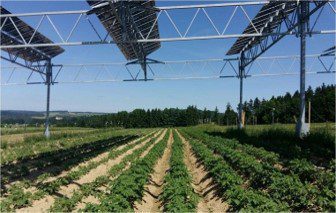
SNC: What do you think investors and executives worldwide should know about Israel?
Ilan: Israel is a gold mine of ideas and bright individuals who are go-getters and work tirelessly to bring their dreams to life. Many of the leading innovative technologies of the past generation were started here. Therefore, I would tell investors worldwide to take a good look at the talent we have here and find those bits of gold.
SNC: Could you recommend a fun activity for global visitors to do once in Israel?
Ilan: I am an avid hiker. So I would recommend travelers to hike along the Israel trail and see the beautiful landscapes in all parts of the country.
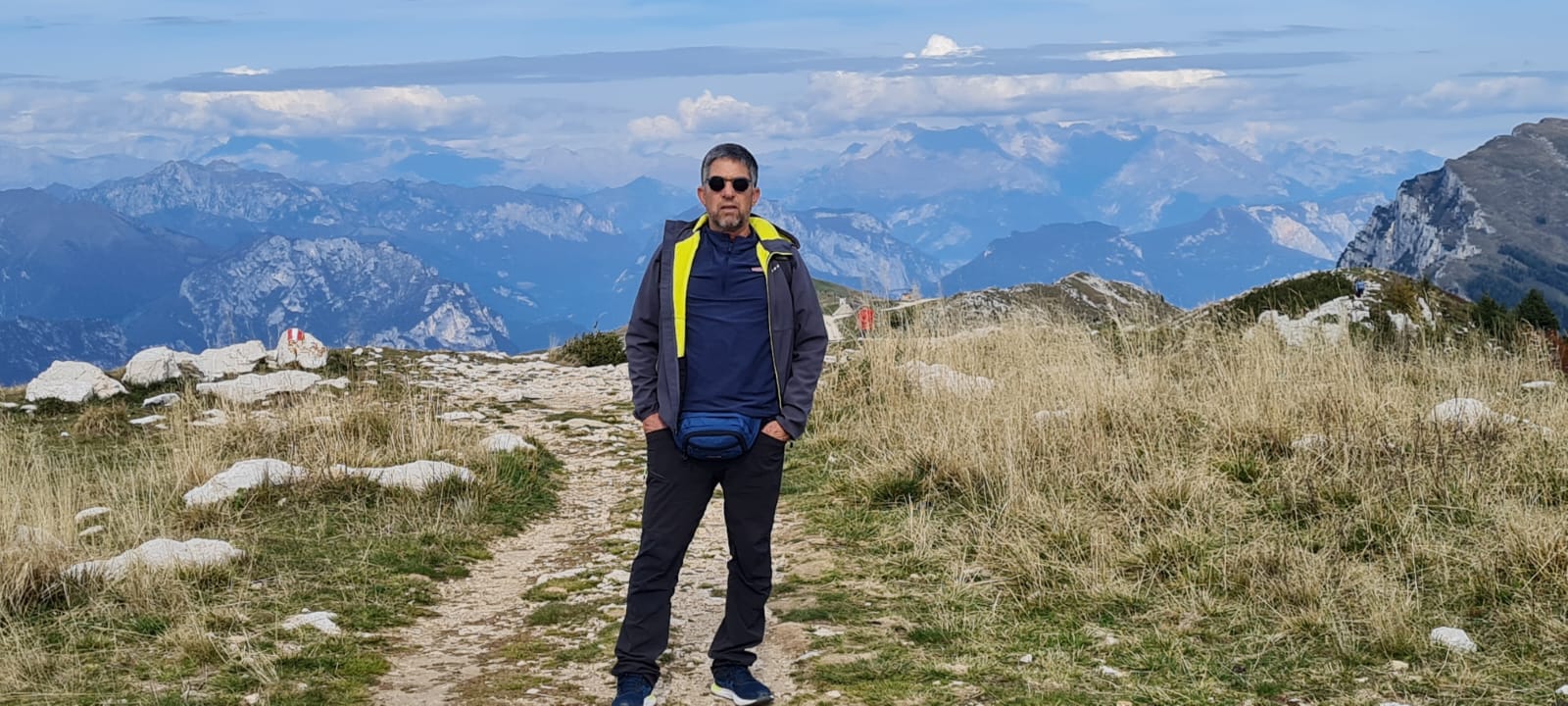
SNC: Are there any questions that I haven’t asked that you would like to shed light on?
Ilan: I would like to answer the question of “why”. Why would I put myself in the middle of this situation with such a high probability of failure? And my answer to that would be that I believe every person should be active in ways they feel they can contribute. The planet is not going to save itself. So don’t be afraid to be an outlier among a silent crowd. Do your part, and we will all benefit.
Checkout Red Solar Flower on Start-Up Nation Finder
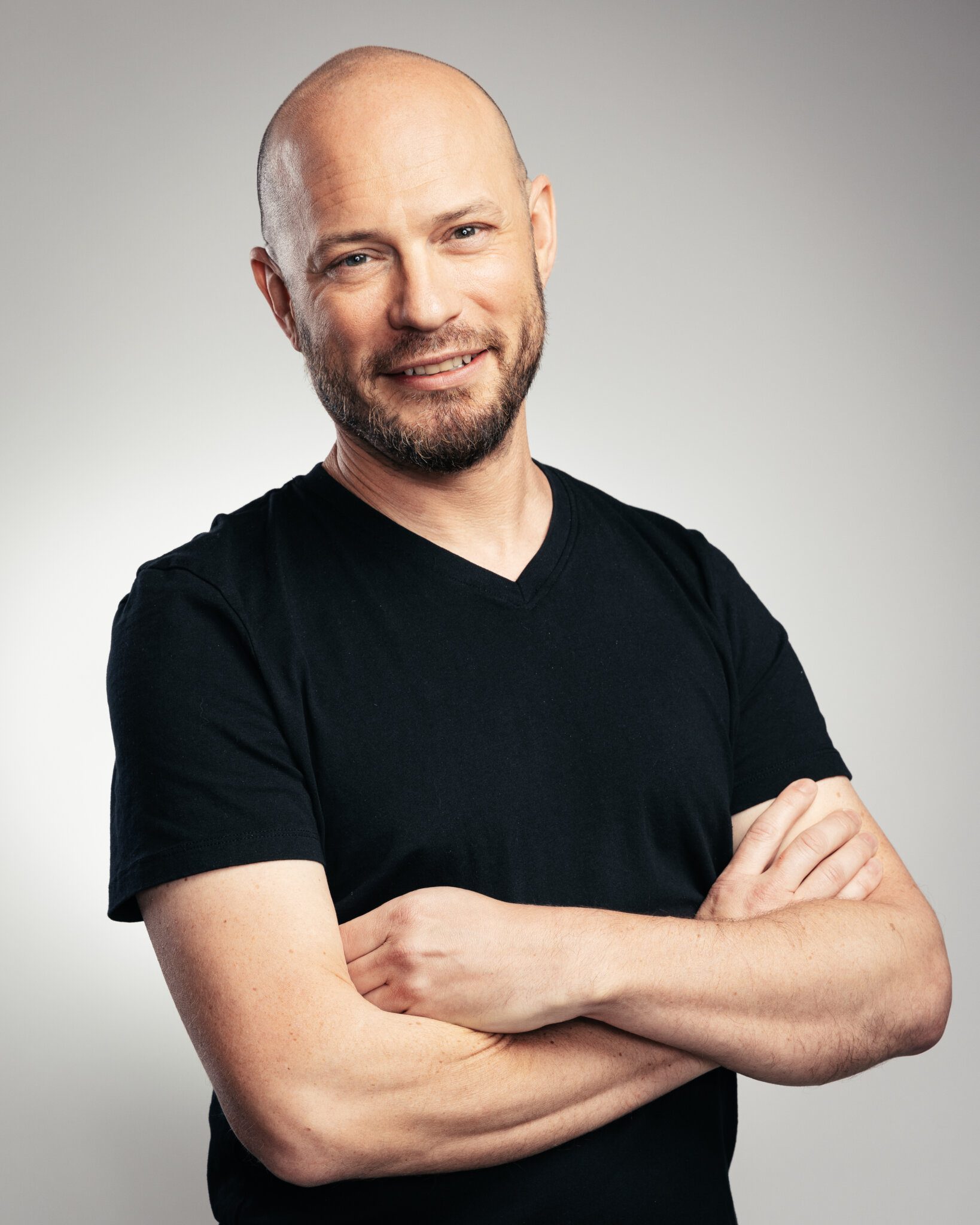
Phillip Stark is the Senior Creative Copywriter at Start-Up Nation Central, a non-profit organization that strengthens Israel’s innovation ecosystem and connects it to global challenges and stakeholders.
